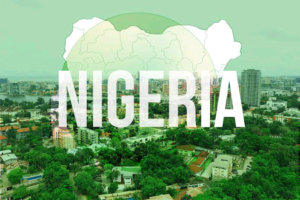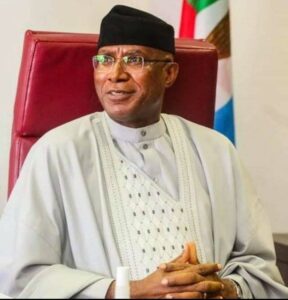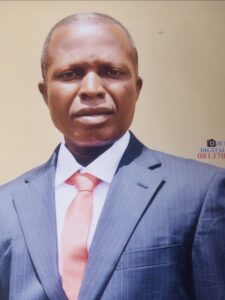Will Rebranding of Buhari work?
By Alex O. Akpodiete Atawa”
In a few days from now, the Presidential election will be held in all thirty-six (36) States of Nigeria plus the Federal Capital Territory (FCT). All observers will admit that this is the closest Presidential polls since the return to democracy in 1999. We held subsequent elections in 2003, 2007, 2011, with the Peoples Democratic Party winning convincingly with landslides.
In the 2011 elections, Gen. Muhammadu Buhari (rtd.) the Presidential candidate of the Congress for Progressive Change (CPC) came second with the other parties Action Congress of Nigeria (CAN) and All Nigeria Peoples Party (ANPP) following very far behind with third and fourth place respectively. The other sixteen parties only received honourable mentions. Interestingly enough, both the candidates of ACN (Mallam Nuhu Ribadu) and ANPP (Ibrahim Shekarau) have decamped to PDP, leaving Gen. Buhari as the only person from the opposition in the 2011 Presidential election that have not joined the ruling PDP. This action has not actually made the prospect of the PDP winning any easier, as would have been expected
In 2003, Gen. Buhari, as ANPP’s candidate, lost to PDP flag bearer and then incumbent President, Gen. Chief Olusegun Obasanjo (rtd.). In 2007, still as ANPP’s candidate, he lost again to PDP, this time with, Umaru Yar’Adua as its candidate. He left ANPP to form CPC and contested for the third time. The statistics of the 2011 elections are as follows: Buhari received 12,214,853 votes, coming second to the incumbent president Goodluck Jonathan of the PDP, who polled 22,495,187 votes.
In the buildup to the 2011 elections, Gen. Buhari did not campaign much is the south and many pundits stated that he felt he did not need the south, and as a result may want to govern for the North only. With the merger of CPC, ACN, aggrieved members of PDP (New PDP) and ANPP, including the questionable Rochas Okorocha faction of All Progressives Grand Alliance (APGA), the dynamics appears different now. The merger and defections have ostensibly given APC a majority in the House of Representatives. After the merger that some have called coming together of strange bedfellows, APC needed to pick a presidential candidate that could withstand the candidate of the ruling PDP, the incumbent President Goodluck Ebele Jonathan, GCFR. The APC Presidential Primaries held December 2014 in Lagos, disappointed many watchers, who thought the party would have fielded a younger, more vibrant, educated flag bearer without the baggage of military coup and alleged human right violation.
However, APC must have seen something in the septuagenarian Gen. Buhari that the rest of the world did not initially see. Nonetheless, the party must have also realized that their candidate needed repackaging and rebranding. Whether the rumours of the hiring of an American Public Relations (PR) firm for millions of dollars is true or not, no one can deny that the General has undergone some rebranding. The greenback paid must be working. The failure of APC to field a younger flag bearer has not become a death knell as some opponents hoped. It should be noted that Gen. Buhari, born 17 December 1942, will be 76 years old at the end of his first tenure, while Nelson Mandela was 76 years old (born July 18, 1918) when he became the first black President of South Africa in 1994 and stepped down in 1999 at age 81.
The retired Major General in the Nigerian Army, that truncated our democracy and ruled Nigeria from 31 December 1983 to 27 August 1985, is now faced with convincing our electorate that he now believes in democracy and is a different person thirty years later. For the first time in his political life, Gen. Buhari has had to campaign for votes all over Nigeria, just like President Goodluck. Gen. Buhari has been seen in parts of Nigeria that he never would have thought of visiting. His new handlers must have read the pulse of the country. The garment of Islamic fanaticism may have necessitated this Sunni Muslim to choose a Pastor (like ACN did in 2011) and fraternize with pastors and Christian religious organizations. The selection of Pastor Tunde Bakare did not work for CAN in 2011 maybe because of his smaller congregation or the fact that Tunde Bakare was once a Muslim. This time around, the opposition went for a church with a larger congregation base.
Also, Gen. Buhari has been visiting various ethnic groups in Nigeria and even donning their clothes. The native of Daura in Katsina State has been seen wearing Igbo outfit, resource control, and even tying Urhobo wrapper when he visited the indomitable Urhobo Progress Union (UPU) before the group’s current fiasco. The APC General has also changed his Hausa/Fulani regalia for a corporate suit and even a tuxedo on at least two occasions.
All these recent transformational rebranding for a party with “Change” as its motto, makes one wonder if it is really genuine. Anyway, we will know in a few days if the rebranding of General Muhammadu Buhari (rtd.) will work.
Wishing all Nigerians a peaceful and non-violent election. Vote your conscience and let your PVC speak for you.
Rev. Atawa, a public Affairs Analyst, rites from in Asaba. Contact him on 08138391661 or Profatawa@gmail.com.




